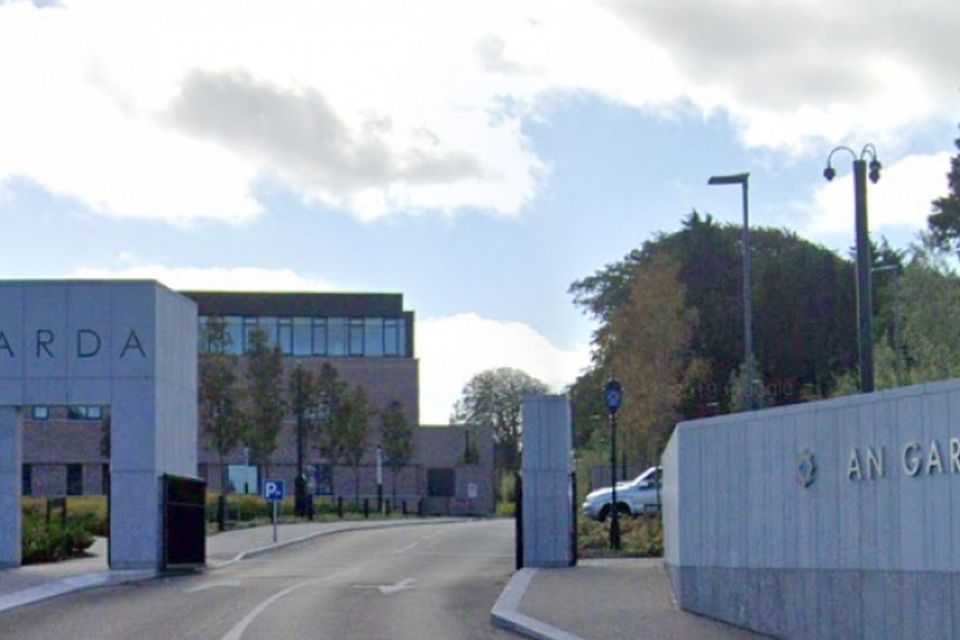Wexford gardaí are cracking down on online sex crimes
Wexford based detectives have the technology to investigate online sextortion crimes
Wexford Garda Station.
SEXTORTION, stalking and child abuse content detection is on the rise in County Wexford.
Detective Sgt Eoin O’Connell heads up the Wexford division’s Cyber Crime Unit and says there are many threats to people by ‘bad actors’ online.
One time consuming investigation involving intimate Snapchat images of up to 200 Wexford women and girls being shared on WhatsApp is still being worked on, several months later due to the complexity of the case and the huge volume of victims.
“I can’t comment about any individual investigation but the likes of Snapchat and WhatsApp groups and messages have led to a lot of hardship and upset and distress for people. It’s the sharing of intimate images. People sending their current boyfriend or partner intimate images of themselves. In some cases those are shared to other groups, thoughtlessly but it is a crime.”
With Coco’s Law, the Harassment, Harmful Communication and Related Offences Act, which arose out of the suicide of Nicole Fox from bullying and harassment and revenge porn, there is now a broader imagining of what is an offence in the sharing of images. “Some images are covered under the Chid Trafficking & Pornography Act.”
The gardaí don’t use the term child pornography, rather child sexual abuse material. “That’s because pornography is legal and can be seen as a victimless crime, whereas any time of these images of shared they are re-victimised. If you are sharing images of someone underage that covers that, but Coco’s Law covers even threatening to send an intimate image.”
Wexford Gardaí have been involved in investigations into online harassment and stalking. “We certainly don’t get as many reports as there are incidents of it happening. Not only with harassment online or stalking online or sextortion, but also frauds.”
He said gardaí are aware that people are ashamed to report being duped.
“Covid would have caused a huge increase in the amount of sextortion because it forced people into online dating. Sexortion is money based or looking for more images.”
Any case involving children or vulnerable victims comes under the remit of the Protective Services Unit where there are specialist interviewers for dealing with delicate incidents.
“We really would encourage people – whether they are an individual or a business – to report the offence. There is no shame in it. We are very much a victim led organisation. We are qualified to deal with victims and you won’t be the first person to come to us reporting this crime; we’ll have seen it before.”
He said people can report a crime online, thereby avoiding having to come to the counter at their local garda station and report a sensitive matter.
Certain incidents can’t be reported online, including assaults and domestic violence.
The Harassment & Harmful Communications legislation made the sharing of intimate images of adults and harmful communications an offence.
“This includes abusing someone on an educational and disability basis, or something can be construed to cause distress to someone. There is nothing in the legislation that specifies the type. Harassment is ongoing and persistent. A once off comment wouldn’t make harassment. A threat to kill would be different.”
As Coco’s Law was only enacted in February 2021, there have been few prosecutions.
Sgt O’Connell said people must take a personal sense of responsibility when online.
“You need to protect yourself online. It’s going to be very difficult to get the support you need with the urgency you need. This will limit the chance they will fall victim.”
He said the sharing of images on WhatsApp groups can see people investigated, if a phone or tablet is seized as part of a criminal investigation following a complaint.
“Chat groups – whether it’s WhatsApp, Snapchat or Messenger – can be very dangerous places to be part of.
"I think everyone has been in a group where you go ‘Oh Jesus, what’s that!’. What I would say is that it’s everyone’s responsibility if they see something illegal to report it or challenge it. If you’re in a group where images are being shared, if you don’t leave that group or report it, you’re leaving yourself open.”
When gardaí have a device it’s an open book to them.
“If it’s seized under warrant or has been handed in by a victim, it’s definitely an open book and we have incredible software to trawl all data.
"We can’t just put out a net and trawl; your device is going to have to get to us in some way as part of an investigation.”
The Protective Services Unit work hand in hand with the Cyber Crime Unit at Wexford Garda Station. “There is certainly an increase on the amount of online based offences. Before everything was done physically, whereas everything has some element of online now.”
A phone call, email, a post on a blog has a time stamp making the opportunity for detection greater. Increasingly assault and cyber bullying victims hand phones in to judges during case hearings and to gardaí, whereas in the past descriptive written notes were submitted.
“If someone receive a threat to their life online, it has the same legal consequences as an in person threat,” said Sgt O’Connell.













